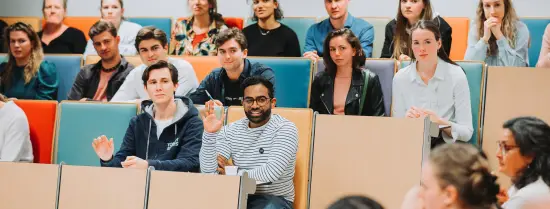- Date
- Wednesday 22 Feb 2023, 16:00 - 17:30
- Type
- Lecture
- Spoken Language
- English
- Room
- Mandeville T3-25

The Faculty Colloquia aim to cover the broad scope of Erasmus School of Philosophy (ESPhil), in analytic and continental philosophy as well as the history of philosophy. In this fifth session of the 2022-2023 academic year, Wim Vanrie (Ghent University) will speak about the tension between vacuity and meaning in Wittgensteinian tautologies.
In the Tractatus, Wittgenstein claims that all propositions of logic are tautologies, such as 'it is raining or it is not raining' and 'if it is true both that if it rains, the streets get wet, and that it rains, then the streets get wet'. According to the Tractatus, such tautologies are devoid of content. They are vacuously true, insofar as they are entailed by any proposition. From this, it seems to follow that they are all identical, so that there is, at bottom, only one logical tautology. At the same time, however, Wittgenstein seems to allow that different tautologies fulfil different roles in our inferential practices. Seen in this way, there must be many different tautologies after all.
The aim of this lecture is to explore this tension. A standard way of resolving it invokes the infamous saying/showing distinction of the Tractatus. It says that — while all tautologies say the same thing, namely nothing — they nevertheless show different things. By drawing on an illuminating discussion by Jean-Philippe Narboux, I will argue that this solution relies on a misunderstanding of the nature of Tractarian showing. In fact, the duality of tautologies as one and many is internal to the Tractatus conception of showing, which itself involves a duality between what I will call logical showing and making plain. While what shows itself in a tautology is every time the same, different tautologies may nevertheless serve to make plain different logical relations between propositions. It is only by seeing how these notions of showing and making plain go together, that we can arrive at a proper understanding of the Tractatus conception of logic.
Wim Vanrie is a postdoctoral researcher in Philosophy at Ghent University, Belgium. He wrote his PhD dissertation at Ghent University on Frege's conception of the logical categories and their elucidation. More generally, his research focuses on the history of analytical philosophy, mainly on topics related to the philosophy of logic. In his spare time, Wim enjoys eating cakes.
